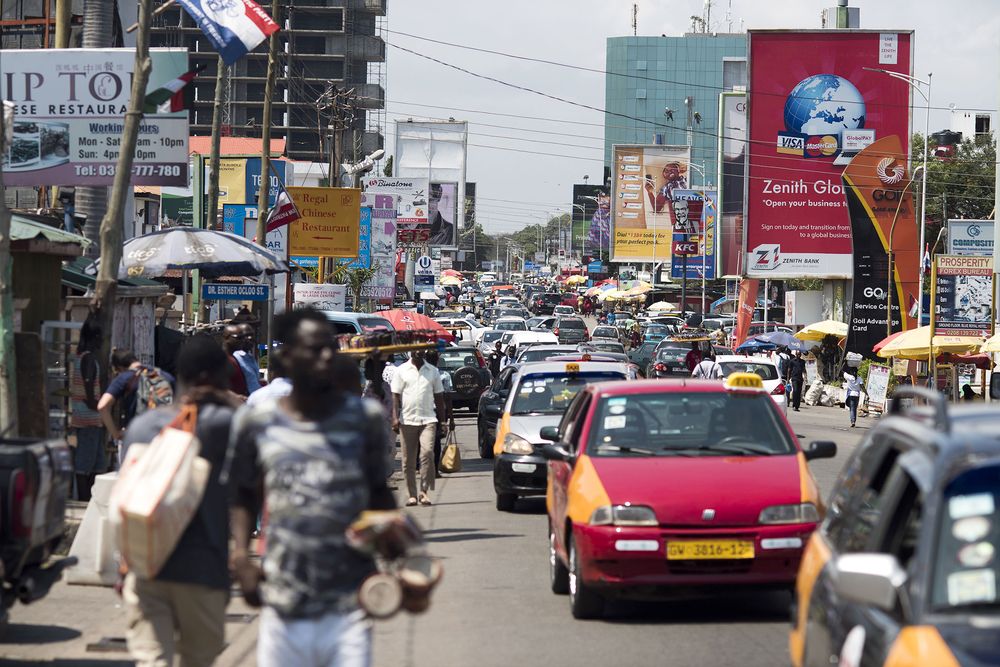
Road traffic passes business advertisements for Zenith Bank Plc and MTN Group Ltd. sit on a busy highway in Accra, Ghana. Photographer: Ty Wright/Bloomberg via Getty Images
The International Monetary Fund has approved a one-year extension of Ghana’s $918 million credit-facility program after a review of the nation’s progress on monetary and fiscal reforms.
The extension will give the West African nation more time to achieve targets such as narrowing the budget shortfall. The IMF approved a payment of $94.2 million to Ghana, bringing total disbursements to $565.2 million, according to an emailed statement from Washington on Wednesday. The rest of the installments from the loan program will be tied to the country’s remaining reviews, the fund said.
The government of President Nana Akufo-Addo, who came to power in January, asked the IMF to allow it until the end of next year to reach the plan’s objectives after the previous administration failed to rein in public spending in 2016. While the lender recommended that the program be extended to allow Ghana more time to reach fiscal-consolidation targets, Akufo-Addo has said the 2018 budget is the last one that will be drawn up under the plan.
“The new government has committed to macroeconomic stability, fiscal discipline and an ambitious reform agenda,” the fund said in its statement. “Decisive implementation of these policies and reforms would allow Ghana to reap its economic potential and achieve higher and more inclusive growth rates.”
Ghana’s budget deficit for 2016 was 9.3 percent of gross domestic product compared with an initial target of 5.3 percent under the IMF program. The government announced in January it discovered about 7 billion cedis ($1.6 billion) in unplanned spending by the previous administration, startling markets and weakening the currency. The shortfall is forecast to narrow to 6.3 percent this year.
Ghana’s economy expanded 3.5 percent in 2016, the slowest pace in 25 years, and growth will probably accelerate to 9.1 percent in 2018 as oil and gas production increase, according to the finance ministry.
The cedi traded 0.1 percent weaker against the dollar at 4.425 as of 5:34 a.m. in Accra on Thursday. The currency has declined 4.5 percent this year.

